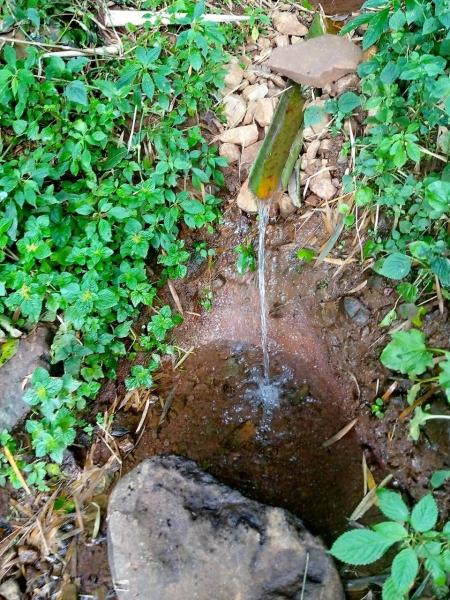In Ethiopia's South Ari Woreda, community members have piloted a new approach to improve access to safe water in their communities.
Published on: 18/04/2022
Mama Kebele is located in the southwestern part of South Ari Woreda. Most of the eight villages have sufficient surface water sources but sources are not protected for drinking and domestic use. Yizeter village has been using unprotected spring water for a long time and struggles with waterborne diseases due to the lack of a clean water source.

The South Ari Woreda Learning Alliance has been working to solve the drinking water challenges in the woreda. Established in 2018 under the USAID Sustainable WASH Systems Learning Alliance Partnership, the alliance meets quarterly to bring together different WASH stakeholders from inside and outside of government to collaboratively address WASH challenges.
Through discussions in the learning alliance, the members decided to try a new approach to improving water supply by sharing the construction costs between the woreda and community. Yizeter village was chosen because the community had been repeatedly requesting an improved water service. When approached by the learning alliance members and the woreda, the community agreed to contribute to the improvement of the existing spring water source.
The plan was to convert the existing spring into a protected spring. The government agreed to contribute 40% of the costs with the remaining 60% made up by labour and in-kind community contributions. The community contributed sand, stone, and labour and government supplied cement, reinforced steel bars, and the cost of masons.
The community was able to supply its contributions immediately. Upon reporting to the woreda, the woreda then procured the other needed materials. The total cost of the project is estimated to be ETB 36,650, of which the woreda contributed ETB 14,200 (39%) and the community contributed ETB 22,450 (61%). In addition, about 60 households participated directly or indirectly during the construction process.
Because of this effective collaboration between the community and woreda and the immediate action taken, the protected water source was completed in two weeks, and 360 people now have a clean water supply close to their home. This action is also encouraging other villages to construct their own schemes and they are requesting the same support from the woreda.
The South Ari Woreda Water Office Head, Mr. Yohannes Melti, said the Woreda Water Office pays private contractors ETB 60,000 to 100,000 for construction of protected springs. However, with community participation, the estimated cost has been reduced by 50%. This mechanism could be one of the main ways to increase water supply coverage in Ethiopia.
Mr. Seid Dawud, the Woreda Budget Civic Core Process Owner, said that the woreda budget is inadequate and it is difficult to cover the direct support and capital maintenance costs. He said, Yizeter’s experience will help the efficiency of the woreda by allowing funds to go further.
All learning alliance members believe that the alliance has played a large role in identifying the water gaps and finding the best solution. Strengthening the water system and its sustainability is not a temporary activity and change is not attained through a brief discussion and support. Water schemes need continuous follow-up and maintenance. Therefore, the learning alliance meetings are the best platforms for thisand should be continued.
At IRC we have strong opinions and we value honest and frank discussion, so you won't be surprised to hear that not all the opinions on this site represent our official policy.